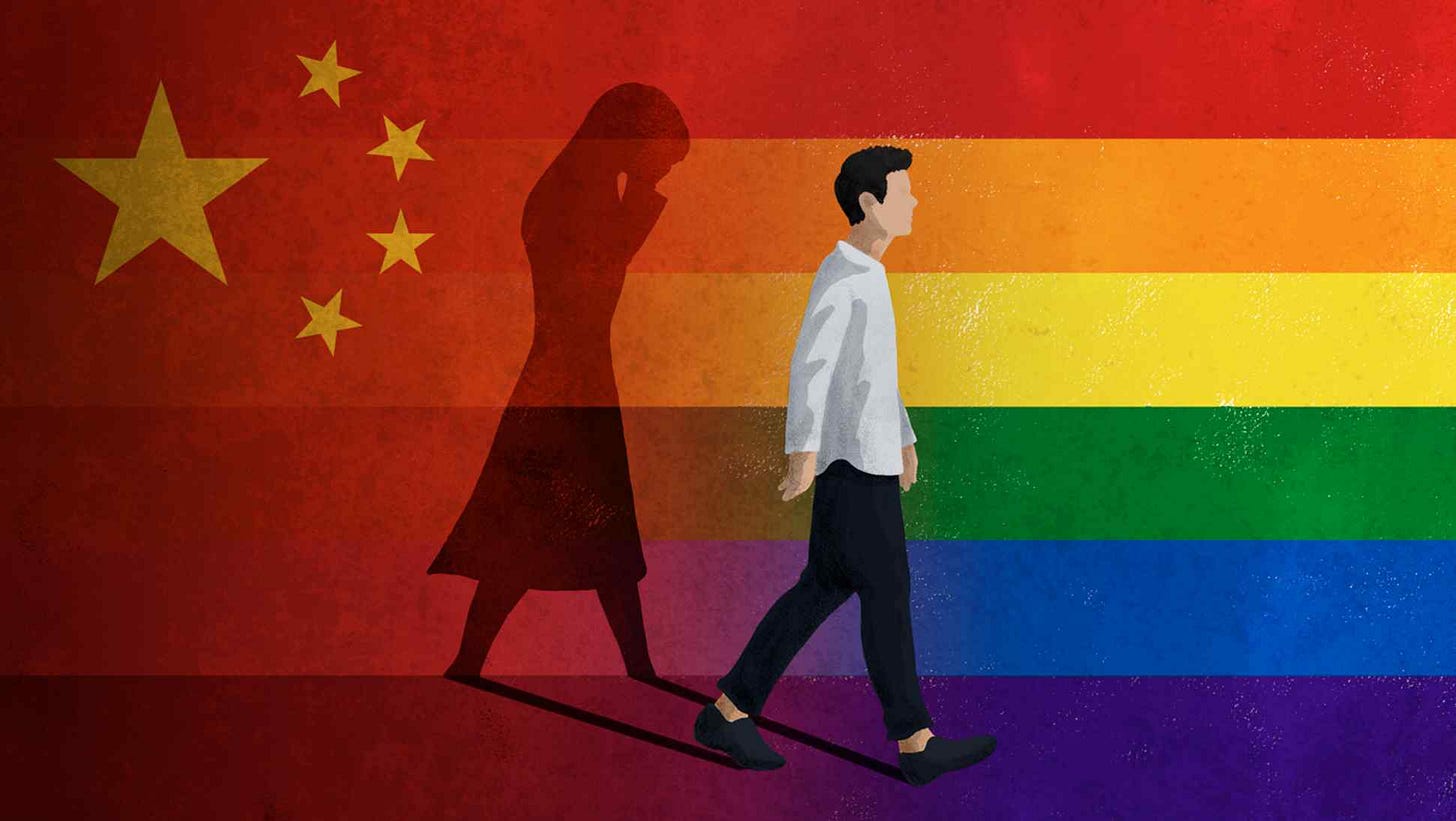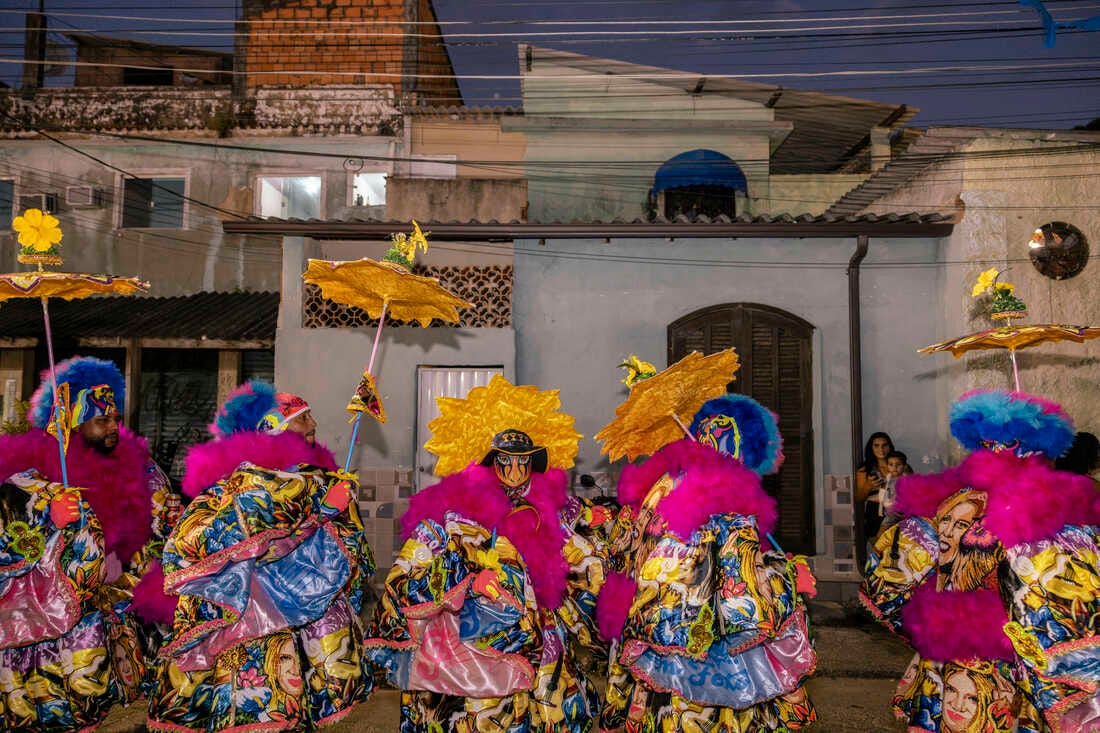Global Roundup: Kazakhstan IPV, St Vincent and the Grenadines LGBT Rights, China LGBTQ Activism, Ukraine Internally Displaced Women, Brazil Women Bate-Bola Carnival
Curated by FG Contributor Samiha Hossain
More than 80 femicides are officially recorded every year in Kazakhstan © Ruslan PRYANIKOV / AFP
CW: gender-based violence
After miraculously surviving her ex-husband's attempt to kill her, Indira Tergeubayeva has been fighting to be recognised as a victim in her native Kazakhstan. Tergeubayeva recounted how her ex-husband had been stalking her and threatening to kill her for two years. In 2022, he attacked her. Despite being left with horrific injuries, police refused to investigate her abuser because he died in the attack.
More than 80 femicides are officially recorded each year in Kazakhstan, where intimate partner violence (IPV) is not included in the criminal code. The United Nations estimates that the unofficial figure could be as high as 400.
Tergeubayeva suffered third-degree burns and underwent several skin grafts on her face and hands. Several of her fingers remain dislocated. Her ex-husband will never stand trial, but she wants an explanation from the police.
We have laws in Kazakhstan, but they don't work for everyone. -Indira Tergeubayeva
Rights groups say women in Kazakhstan feel pressured to drop accusations or reconcile with their abusers. For Tergeubayeva and many others, proving their abuse in court is often an uphill battle. She said she has filed complaints before but suspects that her ex-husband made deals with the police to avoid punishment.
Cases of intimate partner violence are often glossed over by traditional media in Kazakhstan, where public debate is tightly controlled, but survivors and activists are increasingly speaking out on social media. Last year, the death of Saltanat Nukenova, 31, killed by her husband in a restaurant in the capital Astana, sparked widespread outrage online. It prompted an online petition calling for tougher legislation which garnered more than 150,000 signatures in just a few days, a record in Kazakhstan.
Influencers have also taken to social media – a beauty products shop with over 90,000 followers on Instagram produced a viral video with an ironic "tutorial" advising how to conceal the marks of beatings with make-up. Following the backlash, Kazakh President Kassym-Jomart Tokayev promised legislation to criminalise intimate partner violence and authorities launched a public awareness campaign. However, cases like Tergeubayeva’s highlight the pervasiveness of corruption and how more needs to be done.
St Vincent and the Grenadines is one of six English-speaking Caribbean nations with laws criminalizing gay sex. Photograph: Walter Bibikow/Getty Images
The ruling last week by St Vincent’s high court stems from a 2019 case filed by two gay men from St Vincent who live in the UK and US. They sought to strike down colonial-era laws that call for 10 years in prison for anal intercourse and five years for “gross indecency” with another person of the same sex. Cristian González Cabrera, a senior researcher at Human Rights Watch, called the ruling “a travesty of justice” and said it represented “tacit state endorsement” of the discrimination against the LGBTQ+ community.
It was not immediately clear if anyone planned to appeal the ruling. Téa Braun, chief executive of the London-based human rights organization Human Dignity Trust, criticized that the decision was based in part on how the two men challenging the laws do not live in St Vincent.
This is a huge disappointment. The judgment stands in stark contrast to decisions striking out these outdated laws by neighboring courts in Barbados, Antigua and St Kitts just last year, as well as other courts around the world. -Téa Braun
While the laws in St Vincent and the Grenadines are rarely invoked, activists say they help legitimize physical and verbal abuse against the gay community on the small island of some 100,000 people. Last year, a Human Rights Watch report noted multiple instances of abuse and discrimination against gay people in St Vincent and the Grenadines.
Illustration by Hiroko Aida
Last month in China, director Jin Xing, the country's best-known transgender celebrity, held a rainbow flag bearing the slogan "Love is love, love and gender are unrelated." Photos and videos of the event quickly spread across Chinese social media before censors scrubbed the image from the Weibo social network. Chinese nationalists quickly attacked Jin for "poisoning children and destroying the traditions of marriage."
For many in China's LGBTQ community who saw the event online, her action sparked one moment of public pride and defiance among dozens recorded by China Dissent Monitor, maintained by Washington-based global democracy campaign group Freedom House.
She is very brave. Seeing her boldness makes me feel proud. -Chan, 20-year-old gay man living in Shenzhen
Homosexuality was decriminalized in China in 1997, but discrimination against gay and transgender people is not a criminal offense under existing law. The country does not recognize same-sex marriages. It does allow people to change their gender legally on identity documents, but only after sex reassignment surgery. With the number of safe spaces rapidly shrinking and political and rights clampdowns making LGBTQ Chinese feel more isolated, the community is still finding ways to express solidarity and even advocate for sexual and gender rights.
The community showed "dissent" on 34 occasions in the first half of last year, according to data provided to Nikkei Asia by the China Dissent Monitor. While some were in-person gatherings to mark Pride Month in June, there were numerous cases of online posts about topics that ranged from HIV or sexual discrimination to legal protections, or even the sharing of personal experiences as a gay person. Others have opted for a more creative approach. In June, three students at Dalian University of Technology painted a "Love is Love" mural on the school's graffiti wall.
In another case, an artist in Chongqing held an exhibition showcasing art that depicted male reproductive organs in ways that expressed gender diversity. Government authorities eventually shut down the event. The country's most established advocacy group, Beijing LGBT Center, shut its doors last May, just after its 15th anniversary, due to "unavoidable circumstances," which observers interpret as meaning pressure from authorities.
Darius Longarino, a senior fellow at the Yale Law School's Paul Tsai China Center who has written reports on the LGBTQ community, said organizing and attending events have become more risky for gay people than at any point in the past two decades as authorities set their sights on the LGBTQ movement after cracking down on labor and feminist movements. Nonetheless, the community is finding ways to come together. One advocate who through an LGBTQ group has provided support for those who have experienced conversion therapy, said the community will continue to experiment with different ways to host offline events.
Of course I'm a little worried. But we'll continue to take it step by step. -Unnamed advocate
Anastasiia Pyrohova is seen working in Sambir, Ukraine. Photo courtesy of Women’s Perspectives
Pyrohova said she has been helping women cope with forced displacement, fears, and worries. Women's Perspectives, which is supported by UN Women, provides support to those in need, including those who have experienced violence, and who are looking for a job. Pyrohova took on the role of coordinator for a project in Sambir community, where they conducted a needs assessment to determine needs and priorities of internally displaced people and to understand whether they are interested in joining their efforts. It led to an initiative group of internally displaced women, who organized a variety of activities, including psychological and psychotherapeutic groups, art classes, and English language classes. Working in collaboration with the city council, they also established a reception office for internally displaced families.
It can be quite challenging to find yourself in an unfamiliar place, especially when you do not know where to seek help or whom to turn to. -Anastasiia Pyrohova
Being familiar with the struggles of displaced women, Pyrohova also created a roadmap for internally displaced women. It includes detailed instructions on where internally displaced people can receive legal, social, and psychological assistance in Sambir community, as well as information regarding all medical facilities, schools, and kindergartens.
Bate-bola crew Bem Feito goes out during Carnival celebrations in Pedra de Guaratiba, a neighborhood in Rio de Janeiro, on Feb. 11. MarÃa Magdalena Arréllaga for NPR
Far from Rio de Janeiro's boisterous beach block parties and its world renowned Samba competitions, Carnival is celebrated decidedly differently. Out in the landlocked working-class neighborhoods, more than an hour from Rio's downtown, residents celebrate the tradition of bate-bola. Translated literally as ball-beaters, groups of participants, or crews, don colorful clown-inspired costumes. They race through local streets, bashing large balls on the ground, to a frenetic mix of funk, fireworks and fun.
For the past several months, Monique Vieira, a mechanical engineer, and several other members assembled this year's outfits. Along with the mask, the rest of the costume consists of a whimsical, full-ruffled skirt, incandescent colored tights, feather-embellished vests and headdresses. As well as the eponymous ball on a stick, each Bem Feito crew member carries a doll-like replica in this year's theme, dedicated to popular Brazilian singer Marília Mendonça, who died in a plane crash in 2021.
Andra Maturana, who runs Bem Feito with her husband, believes the celebration was born out of her neighborhood's working-class strikes at industries long relegated to Rio's outskirts. She explained how the workers would wear costumes and bash balls on the ground as a form of protest. Maturana wasn't allowed to join a crew as a kid. Her mother said it was too dangerous, with fights breaking out among rival crews. But now, times are changing, according to the 26-year-old new mom, and bate-bola is overcoming its violent stigma. When she first joined the Bem Feito crew in 2018 there were only six women members. This year, there are 40 out of the nearly 400 who will parade.
It has long been an extremely masculine culture, but we are seeing more and more women participating. -Andra Maturana
Sabrina Veloso is a researcher who has written about bate-bola culture. She's also a member of the all-female Brilhetes — or Shining — crew based out of the north zone of Rio, in Anchieta. She says the working-class outskirts of Rio have long been marginalized, with underinvestment. It's not surprising its celebrations don't get much tourist promotion or dollars, she adds. Veloso is sure many of the crews wouldn't mind a few sponsors to help defray costs.
Crew leader Vanessa Amorim says she is saddened when she is in other parts of Rio and residents say they've never heard of bate-bola. Or if they have, they disparage it. She and other crew members have taken to holding bate-bola workshops at schools near Rio's beaches.
We keep fighting and persisting. These days, even the men are accepting us as equals. We no longer parade behind them, nor in front. We are doing it side by side. -Vanessa Amorim
Samiha Hossain (she/her) is an aspiring urban planner studying at Toronto Metropolitan University. Throughout the years, she has worked in nonprofits with survivors of sexual violence and youth. Samiha firmly believes in the power of connecting with people and listening to their stories to create solidarity and heal as a community. She loves learning about the diverse forms of feminist resistance around the world.








